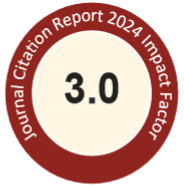Abstract
In 1981, we found in collaboration with the late Dr. Tsuneo Kada that the compound in brewed green tea which suppresses the mutability of Bacillus subtilis is(-)-Epigallocatechin gallate(EGCg). Taking advantage of these findings, we started to isolate EGCg and other catechins in large amount from green tea for the first time in the world. We had made use of these samples, for ourselves and for our collaborators around the world, for the elucidation of physiological functions of tea catechins, under the assumption that the various so far claimed health benefits of tea drinking should have derived from tea catechins. From 1996 onward, we have been supplying the defined tea catechin mixture, Polyphenon® E to the US National Cancer Institute(NCI) for their chemoprevention clinical trials in over 20 instances. Separately, we found in 1990 that the topical application of tea catechins on genital warts caused by HPV eliminates the warts in a number of trials in Beijing Cancer Center. The results prompted a German pharmaceutical company to do the Phase 2/3 trials in EU and US. In 2006, the US FDA(Food and Drug Administration) approved the marketing of Polyphenon® E ointment, Veregen®, as the first "Botanical Drug" under FDA regulation. Currently, new developmental work with Theaphenon® E is underway.
Recommended Citation
Hara, Y.
(2012)
"Elucidation of physiological functions of tea catechins and their practical applications,"
Journal of Food and Drug Analysis: Vol. 20
:
Iss.
1
, Article 30.
Available at: https://doi.org/10.38212/2224-6614.2096

